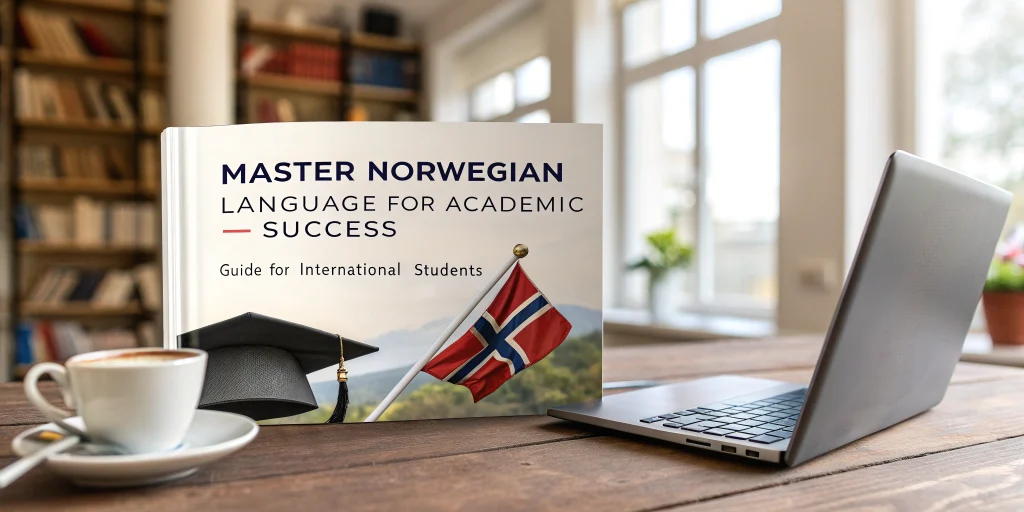How to Master the Norwegian Language for Academic Success: A Guide for International Students
Norwegian Language Requirements for Academic Programs
Norwegian universities have explicit language requirements for international students applying to programs taught in Norwegian. Meeting these standards is essential for admission and academic performance.
Key Language Requirements
To be eligible for Norwegian-taught undergraduate programs, applicants must demonstrate proficiency in Norwegian at a level that enables full participation in academic coursework. Acceptable ways to fulfill this include:
- Completion of the Norwegian written and oral exam from the third year level (393 hours) in Norwegian upper secondary school.
- Passing the Norwegian language test (A1-B2) administered by The Norwegian Directorate for Higher Education and Skills, achieving B2 or C1 results across all four language disciplines: listening, reading, writing, and speaking.
- Completion of “Norwegian for International Students, Level 3” at accredited Norwegian universities or university colleges.
- Finishing a one-year Norwegian language course (60 ECTS) at recognized Norwegian educational institutions.
- Passing the advanced level Test in Norwegian with minimum passing scores in both written and oral components.
For detailed language requirements, you can explore official guidelines on the Norwegian Directorate for Higher Education and Skills.
Pathways to Norwegian Language Proficiency
Achieving proficiency in Norwegian requires strategic planning and active engagement with various learning resources. Below are practical pathways international students can pursue:
University Language Courses
Many Norwegian universities offer specialized language courses tailored for international students. For instance, the Norwegian University of Science and Technology (NTNU) provides part-time Norwegian classes that integrate language learning with cultural orientation.
Key benefits of university language courses include:
- Structured curriculum aligned with academic vocabulary.
- Opportunities to practice oral and written Norwegian in a scholarly context.
- Access to qualified language instructors familiar with students’ academic needs.
By leveraging these courses, international students can accelerate their Norwegian language acquisition and enhance their readiness for degree programs. You can find more information on available courses at NTNU’s language courses page.
Immersive Learning and Social Integration
Beyond formal instruction, immersion in Norwegian society is one of the most effective ways to master the language. Students are encouraged to:
- Engage regularly with native Norwegian speakers through social activities, clubs, or study groups.
- Participate in on-campus events and student organizations that foster language practice.
- Consume Norwegian media, including newspapers, films, radio, and podcasts, to improve listening and comprehension skills.
- Practice conversational Norwegian in daily life, including while shopping, using public transport, or volunteering.
English Requirements for Norwegian Universities
Even for programs taught in Norwegian, English proficiency often remains a prerequisite. This is due to some course materials and academic discourse commonly involving English.
International students typically must submit valid English language test scores such as TOEFL or IELTS unless they qualify for exemptions (e.g., previous academic education in English).
Universities prioritize a balance of strong Norwegian skills for classroom engagement and solid English proficiency to navigate supplementary resources and communication. Detailed information about English requirements is available on the NTNU language courses page.
Norwegian Language Skills Beyond Academics: Citizenship and Integration
For international students intending to reside long-term or pursue Norwegian citizenship, language proficiency assumes additional importance:
- Since October 1, 2022, applicants for Norwegian citizenship must pass an oral Norwegian language test at level B1 or higher.
- There are exceptions for certain demographic groups, but the general focus on language competence remains strong.
- Mastery of Norwegian facilitates social integration, enhances employment prospects, and allows fuller participation in civic life.
Developing Norwegian language skills during your studies is therefore both an academic investment and a strategic move toward successful integration in Norwegian society. Learn more about citizenship language requirements on the Norwegian Directorate of Immigration’s website.
Take the Next Step with Study in Norway
Ready to support your students’ journey to mastering Norwegian for academic excellence? Explore how Study in Norway can assist you.

